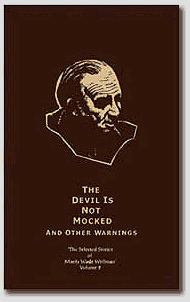
|
Where the Woodbine TwinethTuesday, 24th June 2003, page 2 of 2, West Yorkshire |
![]()
![]()
![]()
![]() Rocks | History |
Workshop |
Links | Home
Page
Rocks | History |
Workshop |
Links | Home
Page
![]()

 An
answer to a little mystery: I used this title in my diary for the 8th
August 2000. Woodbine is a country name for bindweed, especially hedge
bindweed (left), Calystegia sepium, which I've
noticed in flower over the past week. The smaller field bindweed,
Convolvulus arvensis (right), with its pink and white flowers
is the one that I'm just about managing to eradicate from the front garden,
but it's still pushing up through the tarmac of the adjacent pavement.
An
answer to a little mystery: I used this title in my diary for the 8th
August 2000. Woodbine is a country name for bindweed, especially hedge
bindweed (left), Calystegia sepium, which I've
noticed in flower over the past week. The smaller field bindweed,
Convolvulus arvensis (right), with its pink and white flowers
is the one that I'm just about managing to eradicate from the front garden,
but it's still pushing up through the tarmac of the adjacent pavement.
The Alfred Hitchcock Hour
Today I had an e-mail from Melanie Parker, who tells me that Where the Woodbine Twineth is the title of a short story by Manly Wade Wellman (*but see below) which was dramatised as episode #77 of The Alfred Hitchcock Hour. I'd guessed that it was an episode from Boris Karloff's Thriller. The story made something of an impact on me, with its homely setting and sinister atmosphere, when I saw it back in the 1960s.
I remember a scene where a woman is troubled by a little girl who sings the grisly skipping rhyme:
When she's dead,
Boil her head,
Turn it into gingerbread
This being an Alfred Hitchcock Hour you can probably guess what happens next.
* 10/4/12: Thank you to Patricia Winters for pointing out that it was in fact a story by American novelist Davis Grubb (1919-1980) that was adapted for the Hitchcock series. Manly Wade Wellman wrote a story of the same title but this wasn't the one that was adapted for television. Other short stories by Grubb were used in Rod Serling's series Night Gallery.
She adds: 'I also found out that the little song about "stuff her head with gingerbread" is from a movie called Girly. I watched "Where the Woodbine Twineth" eight times and it is not in it anywhere.'
The movie Girly doesn't ring a bell with me but I've definitley got a image of the little girl in the story cooking up something nasty in the kitchen.
 The
Devil is Not Mocked
The
Devil is Not Mocked
Wellman's work, says the publisher's blurb, 'combines the dark gothic tradition of the American pulps with a detailed snapshot of regional history and culture. This mixture is shown through the lens of the American modernist tradition, revealing something that is larger than the sum of its parts.'
Where the Woodbine Twineth is included in The Devil is Not Mocked and Other Warnings, Selected Stories of Manly Wade Wellman - Vol. 2, published by Night Shade Books.
Thank you for the information Melanie.
The Man with the Barbed-Wire Fists
I e-mailed the Night Shade to tell them I'd featured the book and had this reply from them:
if it's of any interest, we published another book the same month as The Devil is Not Mocked, called The Man with the Barbed-Wire Fists, by Norman Partridge. It also has a story called Where the Woodbine Twineth. Completely unrelated, completely co-incidental.
A Midsummer Night's Dream
I was also puzzled about the literary origins of the phrase. I guessed at Robert Burns but Melanie suggests a Shakespearian quote as Wellman's inspiration for the title for the story:
'So doth the woodbine the sweet honeysuckle
Gently entwist.'
Midsummer Night’s Dream, iv. 1.
The Dictionary of Phrase and Fable (1898) gives 'gone where the woodbine twineth' as a euphemism for going to the pawnbroker’s, up the spout, where, in Quebec, 'on cottage walls the woodbine may be seen twining.'
And there's also an 1870 song by Septimus Winner named Come Where
the Woodbine Twineth.
I'd come across the pawnbroker's shop explanation before but I couldn't
imagine a shop with bindweed growing up the walls, however in North America
woodbine is a name given to Virginia creeper, Parthenocissus
quinquefolia. As it turns red in the autumn I expect this plant would
raise the profile of the pawnbroker's shop at a time of year when more
and more people were in need of it.
 In
Europe the name is sometimes given to common honeysuckle,
Lonicera periclymenum. As the Shakespeare quote mentions both plants
presumably Shakespeare was referring to the bindweed.
In
Europe the name is sometimes given to common honeysuckle,
Lonicera periclymenum. As the Shakespeare quote mentions both plants
presumably Shakespeare was referring to the bindweed.
Woodbines were a brand of cigarettes that in the 1950s and early 1960s
were still sold in a pack that had a design that looked as if it hadn't
changed since Victorian times.
![]()
![]() Next page |
Previous page | This
day last year | This month |
Nature Diary |
Home
Page
Next page |
Previous page | This
day last year | This month |
Nature Diary |
Home
Page
![]()